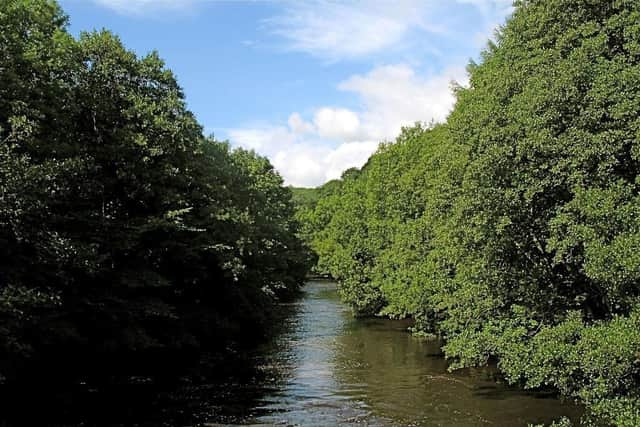Bacteria linked to sewage at ‘concerningly high’ levels in River Nidd
The testing is taking place to support a campaign to clean up the river so a section of it can eventually be designated bathing water status. This would mean people could enjoy wild swimming in the river by the Knaresborough Lido caravan park without falling ill. Currently in England, the only a section of a river to achieve the status is the Wharfe in Ilkley.
Scientists say E. coli in water is a strong indicator of sewage or animal waste contamination and consuming it can lead to severe illness. Last week in the House of Commons, MPs said raw sewage and microplastics in the UK’s rivers were putting health and nature at risk.
Advertisement
Hide AdAdvertisement
Hide AdThe campaign in the Harrogate district is gathering momentum and is being led by Andrew Jones, the Conservative MP for Harrogate & Knaresborough, who secured a debate on the topic in Parliament in November.


Anglers in Nidderdale have set up Nidd Action Group and a meeting was held in Knaresborough this week about how to clean up the river. A cross-party working group of councillors has also formed to help tackle the problem.
Councillor Monika Slater updated councillors at the Harrogate & Knaresborough area constituency committee on how the campaign is going.
She said several councillors attended the Nidd Action Group meeting, adding: “It was a really good turnout. There’s a lot of community support and estimates are around 70 people attended.”
Advertisement
Hide AdAdvertisement
Hide AdCoun Slater said anglers – as well as scientists at the University of Leeds – are testing the river once a month for pollutants and have found that E. coli is at “concerningly high” levels. Testing will be increased to every fortnight from May 15, which is the beginning of the bathing season.
Earlier in the meeting, councillors heard from Sarah Robinson, corporate affairs advisor at Yorkshire Water. Ms Robinson gave details about the scale of the problem in the Nidd and what the company is doing to improve its infrastructure.
Water companies are allowed to release sewage into rivers when the sewerage system is at risk of being overwhelmed, such as during heavy rainfail, through what are called storm overflows.
Ms Robinson said Yorkshire Water had 2,221 storm overflows during 2022 — a figure that is down slightly on last year’s number. She said the company is set to spend up to £39m by the end of the decade to improve its infrastructure in Harrogate and Knaresborough.
Advertisement
Hide AdAdvertisement
Hide AdMs Robinson added: “We’ve got a long way to go before we’re up to the standard our customers expect. We will work out where best to spend our money to reduce our impact and spill less. That process is ongoing. The goal is to reduce the average spills by 20 per cent by 2025.”